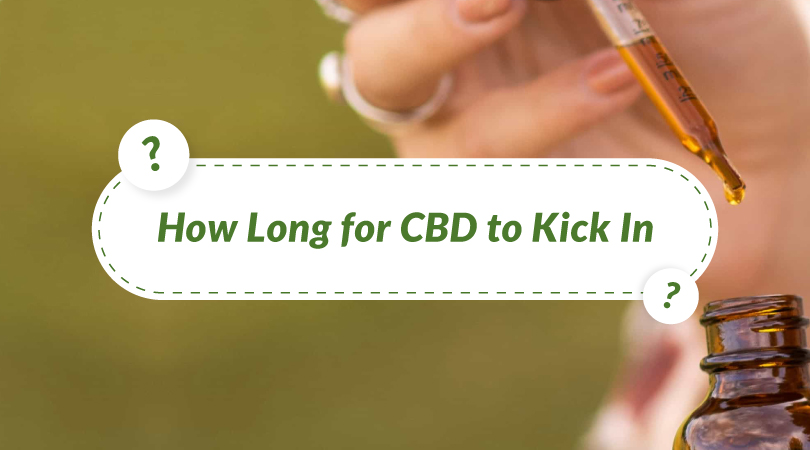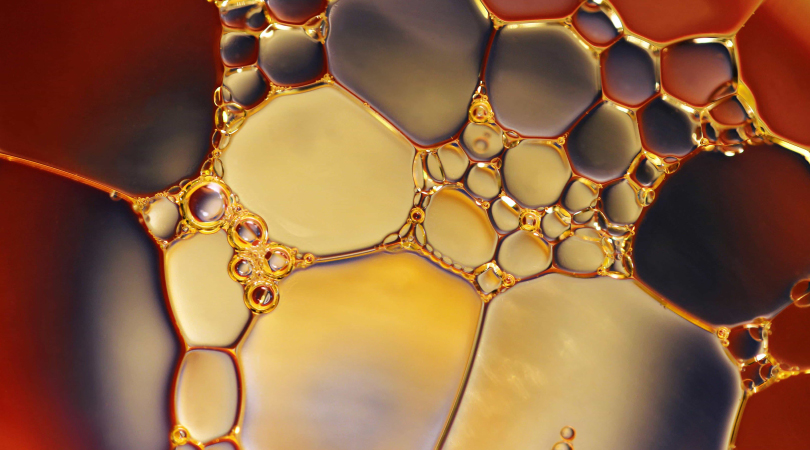
How Long Does It Take CBD to Kick In?
If you’re new to CBD, you might be wondering, “How long does it take CBD to kick in?” This is one of the most common questions we hear from people exploring CBD for the first time. The answer isn’t straightforward, as many different factors can influence how long it takes CBD to work.
Understanding CBD’s onset time will help you plan how to take your CBD and how to adjust your routine to make it more effective. Plus, you will know if your CBD is high-quality and if you choose the right product for your needs.
This guide covers the answer to “How long does it take CBD to kick in?”, the factors that influence its effectiveness, and how different forms—such as oils and salves—compare in terms of onset time.
How Does CBD Interact with Your Body?
To understand CBD’s onset time, it’s important to know how CBD interacts with your body’s endocannabinoid system (ECS). ECS is a network of receptors that helps regulate mood, pain, inflammation, and other essential functions of your body. That’s why CBD is being researched for potential therapeutic benefits for so many different conditions, from sleep issues to back pain.
Once you take CBD, it will interact with receptors CB1 and CB2, which are located in your nervous and immune systems.
You’ll start to feel its effects at this point. Now, remember that CBD is not psychoactive, so you won’t have any ‘high’ effects. It’s helpful to understand what effects to look for after taking CBD so you can better evaluate your experience.
CBD Effects: What to Expect
These are the effects you should look for if you want to know if your CBD has already kicked in:
- A sense of relaxation: You have probably heard of CBD’s potential benefits to alleviate anxiety and stress. If you take CBD after work to relieve some of the stress accumulated during the day, you should feel your body and mind calming and setting you out for a relaxing evening.
- Reduced inflammation or discomfort: One of the most researched potential benefits of CBD is its capacity to reduce inflammation. That means that if you are taking CBD to help you alleviate some sort of inflammation, you should pay close attention to the affected area of your body; although do keep in mind that these effects usually start to be more noticeable after taking CBD consistently in a well-established routine.
- Improved mood: Anecdotal evidence suggests CBD can help people with depression, meaning that it can have an impact on how you are feeling.
- Better sleep quality: Preliminary studies are bringing light to CBD’s potential to help people with insomnia; you should feel your body winding down and getting into the mood for a good night’s sleep if you are taking CBD to help with your sleep quality.
CBD Consumption Methods and Onset Time
The way you take CBD significantly affects how long it takes to start working.
CBD Oil (Sublingual):
This is probably the most used way to take CBD. It consists of putting some drops of CBD oil under your tongue, waiting up to 60 seconds for it to be absorbed, and then simply swallowing. This will allow the CBD to be absorbed directly into the bloodstream through sublingual glands.
Onset Time: 15-45 minutes
Best For: Quick relief, daily wellness routines.
CBD Salves & Topicals:
Another popular way to use CBD is in a salve form. Salves are light topical ointments that get quickly absorbed into the skin. They aren’t as heavy as creams, which makes them a great choice to carry CBD.
Plus, sometimes they are infused with other therapeutic and soothing plants like eucalyptus to potentiate their comforting effects. You can just apply it directly to the needed area. For example, if you have a sore ankle, you can use our CBD Salve for Chronic Pain and let it get absorbed into your screen to potentially alleviate the inflammation and pain.
Onset Time: 15 minutes to an hour
Best For: Targeted relief, sore muscles, and joint pain.
Other Methods (Capsules, Edibles, Vapes):
There are additional CBD consumption methods worth understanding as you explore your options.
CBD Capsules/Edibles: Expect effects in about 30 – 120 minutes because the CBD must move through your digestive tract before entering your bloodstream. Compared to CBD oil, this method takes longer to kick in, so you should plan ahead depending on the hour you want to start feeling its effects.
CBD Vapes: Lungs absorb CBD almost immediately after vaping it. However, it’s important to exercise caution with this method, as some vaping products may contain additives that could impact lung health.
CBD Dosage
Dosage is a simple factor to adapt to your needs if you want to guarantee your CBD kicks in when and how you want it. Generally speaking, higher doses can act faster, but jumping straight to a large amount may leave you groggy. Start low, monitor how you feel, then adjust until you reach the desired effect without unwanted drowsiness.
Diet’s Effect on CBD Absorption
Whether you take CBD on an empty stomach or after eating a big meal will affect how long CBD takes to work. One study searched how eating a fatty meal changes how much CBD the body absorbs compared to taking it on an empty stomach. They gave a dose of CBD (70mg) to healthy men and women, comparing taking the CBD after a high-fat meal to taking it while fasting. They measured the amount of CBD in the participants’ blood over time.
The results were that eating a fatty meal dramatically increased the amount of CBD that got into the bloodstream. While this might seem counterintuitive, CBD’s improved absorption with fatty foods makes sense when you consider how the liver and digestive system process fat-rich meals.

CBD Tolerance
First-time users may feel CBD’s effects sooner. This can happen for a couple of reasons:
- When someone tries CBD for the first time, they’re often paying closer attention to their body’s sensations than regular users. This increased awareness can make you have a greater perception of even subtle changes.
- First-time users have a “clean slate” in terms of their endocannabinoid system’s interaction with CBD. This means their bodies might react more noticeably to the initial introduction of the compound.
Types of CBD
Full-Spectrum CBD: This type of CBD contains all cannabinoids, including small traces of THC. This means that Full-Spectrum CBD can lead to what is commonly known as the “entourage effect” and cause more noticeable effects. Beyond making you feel the effects faster, the main advantage of Full-Spectrum CBD is that it interacts with a broader network of receptors in your body, giving you more holistic effects.
Broad-Spectrum CBD: While THC-free, it does contain multiple cannabinoids besides CBD. This type of CBD will give you a more complete experience compared to Isolate CBD but is less potent compared to Full-Spectrum CBD. You can think about it as a halfway experience, where you won’t be exposed to any traces of THC, but will still enjoy the potential benefits of other cannabinoids. It won’t necessarily speed up the onset time of your CBD.
Isolate CBD: This is pure CBD with no other cannabinoids. It can be preferred by some users who want to avoid any other cannabinoid; however, anecdotal evidence suggests that it can be slower to work for some people.
Metabolism and CBD Onset
Metabolism is the chemical process of how your body breaks down and processes food, drinks, and other substances to transform them into energy. Individual metabolism rates can significantly impact how quickly substances are processed in the body, which helps explain the variation in CBD onset times between different people.
There aren’t many specific studies on CBD and metabolism, but earlier approaches suggest that users with faster-acting enzymes (meaning a faster metabolism) may experience a quicker onset but shorter duration, while slower enzyme activity could result in a delayed onset and longer-lasting effects.
CBD Quality
One easy-to-control factor to ensure your CBD kicks in correctly is buying high-quality, lab-tested CBD products, as they work more efficiently than low-quality or improperly extracted ones.
Low-quality CBD may have additional components that may affect how long it takes to kick in, or it can even have a lower dose than the one it states it has, reducing its potency and effects.
You want to make sure your provider has good reviews, and clear and comprehensive lab results to guarantee it has a clean extraction process and that the label really matches its content.
How to Know If Your CBD Isn’t Working
Build a consistent routine around your CBD use. Take the same dose at the same time every day for at least 14 days, then review your notes on mood, pain, sleep, and stress. If nothing has changed, try one option at a time:
- raise the dose in small steps,
- switch to a faster-acting form (oil or vape), or
- verify the product’s third-party lab report for strength and purity.
Still no results after those tweaks? The product may be poor quality or expired, and it’s time to choose a fresh, lab-tested CBD.

Tips to Make Sure Your CBD Kicks In
There are some steps you can take to improve the chances of your CBD kicking in correctly, including:
- Find the Right Dose for You: Begin with a low dose and gradually increase it until you find you feel satisfied with the effects and potential therapeutic effects CBD gives you.
- Consistent Timing: Take CBD at consistent times each day to maintain stable levels in your system and build a routine in which your body will know when it will get CBD, optimizing your metabolism and ensuring a faster onset time. This will also help you evaluate if you are getting the expected results, especially if you are taking CBD for a specific condition.
- Pair Your CBD with Fatty Foods: If you are taking CBD edibles, make sure to take them along with fatty foods. Since CBD dissolves in fats, fatty meals will aid your digestive system in absorbing it.
- Choose High-Quality CBD: As we saw earlier, one of the best and easiest ways to ensure your CBD will work is by buying it from a reputable brand. Select CBD products from manufacturers that share their third-party lab testing results to ensure product quality, purity, and accurate CBD content.
- Full-Spectrum vs. Broad-Spectrum vs. Isolate: Even though the type of CBD you buy depends on what cannabinoids you want to include in your CBD experience, you should consider full-spectrum over broad-spectrum or isolate CBD if you are looking for quick onset time.
Best Time to Take CBD
As with all things CBD, there is no universal answer to what the best time to take it is. However, there is one big question you can consider to help you decide the time that works best for you: Why are you taking CBD?
The best time for you to take CBD will mostly depend on the reason you are using it.
Anxiety and stress during your work day? Take it in the morning before you start your work day to improve your mood before stressful situations get to you. Bad night’s sleep? Take it at night an hour or so before bedtime so you can help your mind settle down for a restful sleep. Need potential pain relief? Analyze your symptoms, and see when pain gets worse for you. Is it when it gets cold? After taking a walk? Take CBD right before you anticipate pain.
Ultimately, the optimal timing for CBD consumption depends on your individual routine and wellness goals.
Key Takeaways
How long does it take CBD to kick in? CBD onset time varies based on several factors, including method of consumption, dosage, and metabolism. We recommend you choose Full-Spectrum CBD oil, as it is one of the fastest-acting options, or salves if you are looking for targeted relief. To experience the best results, choose high-quality CBD and take it consistently. If you are ready to experience the benefits of CBD, shop our CBD products at Vitality today!
Frequently Asked Questions
Will CBD Get Me High?
No. CBD is non-psychoactive, so it won’t cause a “high” or buzz. If you do feel intoxicated, the product may contain more THC than the label shows. Always check the brand’s third-party lab report before buying.
How Long Do CBD Effects Last?
Most people feel CBD for two to six hours. Oils and vapes trend toward the shorter end, while capsules or edibles can last longer because they pass through your digestive system. Dose, body weight, and whether you ate recently also change how long the effects stick around.
Will I Feel CBD the First Time I Take It?
Some first-time users notice calm or less discomfort within one dose, but many need a week or two of daily use to build steady levels in the body. Start low, track how you feel each day, and adjust slowly until you reach your goal.
References
Chayasirisobhon S. Mechanisms of Action and Pharmacokinetics of Cannabis. Perm J. 2020 Dec;25:1-3. doi: 10.7812/TPP/19.200. PMID: 33635755; PMCID: PMC8803256.
Magno da Nóbrega Marinho A. Anti-inflammatory effects of cannabinoids. REVIEW ARTICLE. BrJP 6 (Suppl 1). 2023. https://doi.org/10.5935/2595-0118.20230010-en
Milligan AL, Szabo-Pardi TA, Burton MD. Cannabinoid Receptor Type 1 and Its Role as an Analgesic: An Opioid Alternative? J Dual Diagn. 2020 Jan-Mar;16(1):106-119. doi: 10.1080/15504263.2019.1668100. Epub 2019 Oct 9. PMID: 31596190; PMCID: PMC7007359.
Ranum RM, Whipple MO, Croghan I, Bauer B, Toussaint LL, Vincent A. Use of Cannabidiol in the Management of Insomnia: A Systematic Review. Cannabis Cannabinoid Res. 2023 Apr;8(2):213-229. doi: 10.1089/can.2022.0122. Epub 2022 Sep 23. PMID: 36149724.
Saals, B.A.D.F., De Bie, T.H., Osmanoglou, E. et al. A high-fat meal significantly impacts the bioavailability and biphasic absorption of cannabidiol (CBD) from a CBD-rich extract in men and women. Sci Rep 15, 3678 (2025). https://doi.org/10.1038/s41598-025-87621-4
